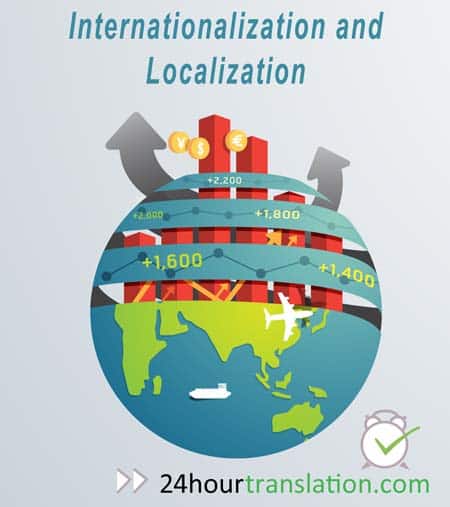
Succeeding in internationalization sometimes requires a company to review how well internationalization aligns with the company’s strategic planning, its products, the requirements of the international market that it seeks to enter and the company’s ability to monitor and maintain the expansion. The information gathered will help a company formulate its strategy, which often includes one of the following choices:
Multi-domestic Strategy
A multi-domestic strategy establishes branches with significant autonomy. The strength of this strategy is that it allows branches to respond quickly to the local needs. The downside is that it does not allow for economies of scale. Further, because these branches operate independently, they may find themselves at odds with corporate-level decision making. For instance, a large French retailer with stores in China advertises low pricing on non-existent products. When corporate learned about the practice, it immediately ended it, even though this practice is commonly used by Chinese retailers to increase store traffic.
Global Strategy
Under a global strategy, a business treats the world as one big marketplace. There is little or no product or service customization and pricing is fairly uniform. Further, little or no decision-making is done at the local market level. This type of strategy allows for economies of scale to be recognized.
Trans-national Strategy
When a business follows a trans-national strategy, it attempts to find synergies where many costs can be shared and decisions can be made at the corporate level, while allowing some specific decisions to be made at the local market level. For example, a restaurant chain might keep purchasing and accounting at the corporate level, while at the same time making certain marketing, advertising and personnel decisions at the local level.
Additional Considerations
Deciding on the type of international strategy to follow is one of the more obvious choices a company must make. Before going international, companies need to develop plans and policies for marketing and communications, human resources, accounting, information technology and more. Companies also need to partner with a reliable translation services company. Other critical areas of concern are described below.
Products
When it comes to internationalization, there are two primary questions that need to be answered. Which products should be offered, and should they be customized for certain market level conditions? Customization can add costs, but sometimes it is necessary to meet the needs of the local market. Some manufacturers customize products for developing countries by removing features that add costs, thus offering lower pricing that is more compatible with the incomes of the local market. In some markets, product packaging must be customized to meet specific regulations of the local market.
Customer Support
By their very nature, some products require customer assistance, installation assistance or warranty repair. When a company’s products require after-sales assistance, a business needs to plan how to provide these services. In some cases, a company might manage this on their own, and in other instances they might decide to outsource the work to other companies that can provide bilingual or multilingual translation and customer support services.
Promotion
Public relations, advertising and sales promotion can be challenging to internationally operating companies. Usually a company needs to translate and localize its marketing materials, not always easy to do from the corporate level. In each specific culture, colors, expressions and words can convey unintended meaning.
Pricing
Doing business in a foreign country comes with the additional costs of tariffs, shipping, handling and other costs. A thorough cost analysis must be conducted to ensure that products can be priced competitively.
Staffing
When a company embarks on an international strategy, it usually sends domestic managers to direct the new operations. In recent years, training and promoting local talent to manage the operation has become a trend. This is particularly true in China, where Americans have shown a high propensity to return home before their mission is completed, often stemming from loneliness and spousal complaints. Additionally, the cost to hire and retain local talent is generally much lower.


For companies selling digital goods, paypal is all that is required. Providing support on digital items is easier, an email is enough to ship the digital good. However, it can be a real challenge for a company that sells physical goods.
Even for digital goods support can sometimes be tricky. Having a good manual translated in the native language of the target country where it is going to be sold can be helpful.
thanks,
Uttoran Sen,
So many companies don’t do their due diligence before they decide to expand and then they end up with problems that could have been prevented when growing their reach.
Understanding the demographic, the language, the idioms, and so many other aspects of their target market will help a company position itself with a higher chance of success. I’ve found that surveying a portion of the market gives companies great insights in order to craft the messaging on the product and in their marketing materials. The advice given in this article could really help a lot of businesses. I’m sharing it on my social profiles.
All the best,
Eren Mckay
Expanding internationally is a tough process which really needs to be addressed with a lot of strategy behind it.
At some point we created a Russian version of our American service and faced an absolutely different mindset when it comes to free versus paid and many other factors. Countries are more different than many businesses are prepared for!